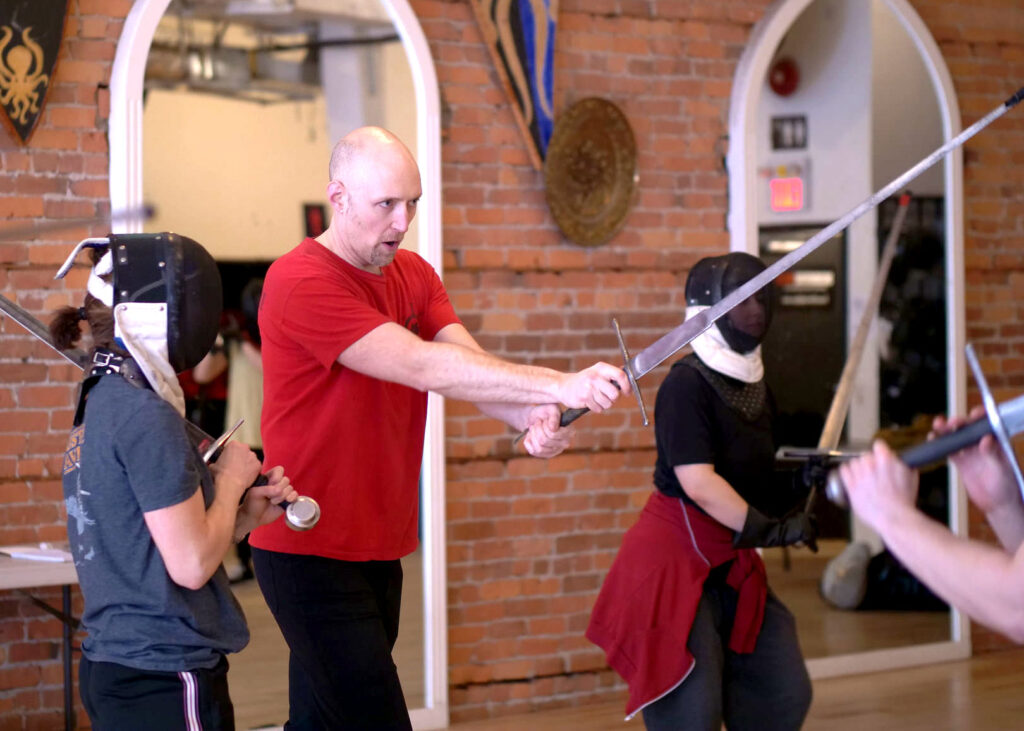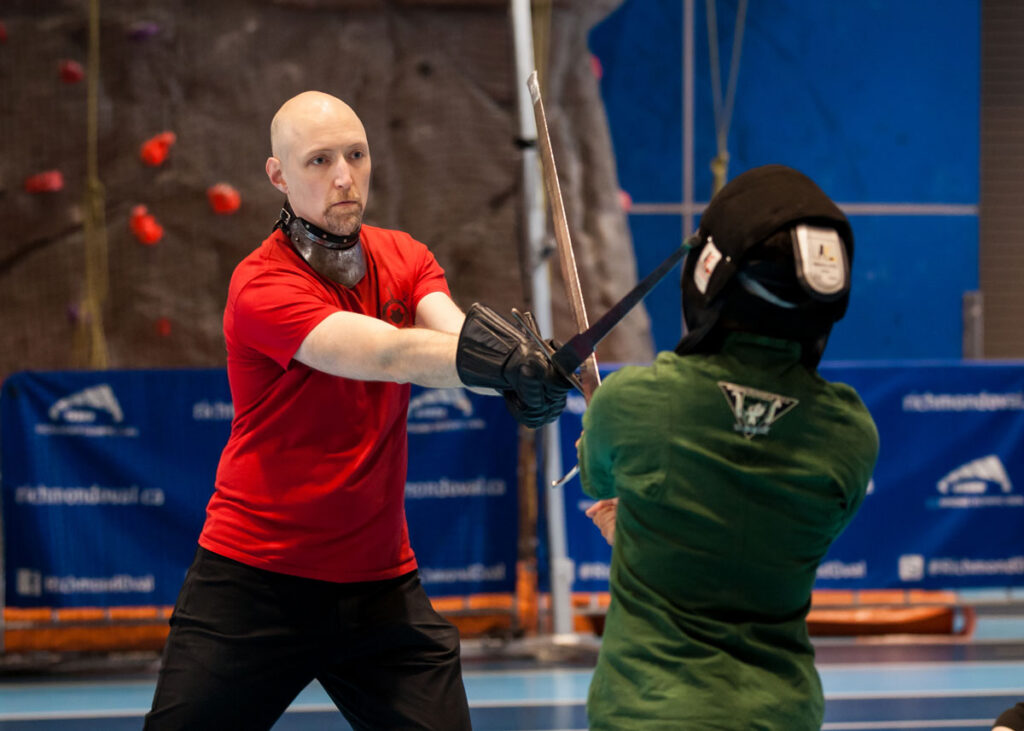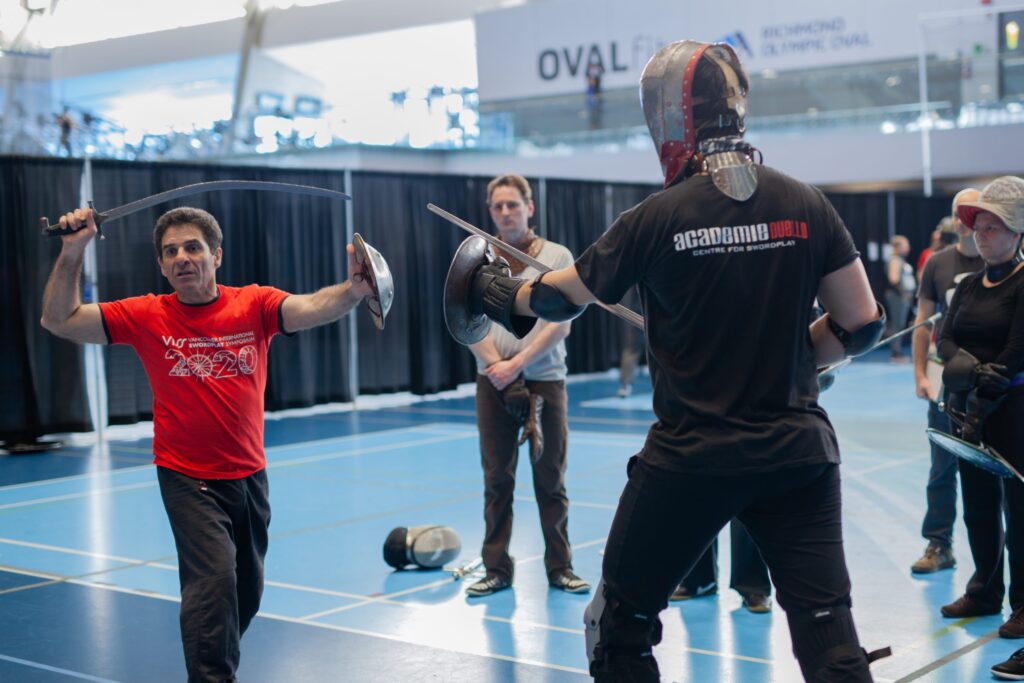Post Symposium Analysis – What do you do with all this new info?
It’s about time I make an official post-VISS post. Truth is it has taken me weeks to recover from what shaped up to be a fantastic event! Thank you to everyone who made it to Vancouver to teach, train, help, and share. This was a tremendous year and I am honoured you all were there to share it with us.
After VISS this year we brought all of our Academie Duello instructors together for a VISS show-and-tell and a download of what we had learned. Having external instructors in is a great opportunity for a school, especially when there is a collection of them all at once. As an instructor body we want to reflect on what we’ve learned, especially those things that come from practitioners of our own traditions or those that are closely related. We shared specific techniques, pedagogical approaches, differences we perceived in approaches, and simply shared the flow of what we had learned. This opportunity to teach what you were taught is great for cementing new learning. After each presentation we then asked ourselves some important questions for the school as a whole:
1. Does anything we learned prompt a technical change from us?
Often practitioners from other places have different interpretations or implementations of techniques from within your system. It behooves us as practitioners and teachers to seriously explore these differences and determine if they are better and whether a change to the school syllabus should be made. If we are not going to change the syllabus, if we prefer our implementation to theirs, do we have clearly thought out reasoning for ‘not’ making the change? In our post-VISS meeting we discussed many different implementations and the pros and cons of various approaches before adopting or rejecting any.
2. Did we witness a teaching approach that prompts a pedagogical change from us?
One of the things I most enjoy about taking workshops from my excellent colleagues is the opportunity to see ‘how’ they teach. What is the approach that they take to build a particular technique from its fundamentals to implementation in its appropriate tactical context? This year we talked a lot about language and lexicon in our instructor meeting. There are many different uses of language and they can greatly affect how a particular topic is delivered, do we like the language we use and how do we want to change it? Where is consistency within the broader community important (or even possible) and where does our language potentially fail us in communicating the essence of what we’re teaching?
3. Is there any new discipline that excites us or our students enough that we should consider developing it at our school?
Every time we host VISS we like to bring in workshops on topics that we already teach, so our students can refine their understanding by witnessing a different approach, and things that we don’t teach, so we can be excited and expanded by outside ideas. This year I know people were particular excited by Jason Smith’s poleaxe program — and because of that we will definitely be accelerating our implementation of a Polearms focus class. The Iberian tradition delivered by Puck Curtis and Eric Myers also inspired. I think we may see some students looking to create a study group to continue their practice and implementation of these techniques. I’m looking forward to being a part of this myself. I also know that our Messer enthusiasts were excited by the material that Jessica Finley delivered — I look forward to seeing where they go with it!
Well 2015 is a long way away but I think we have plenty of food for thought between now and then. And hey there’s always WMAW in September!




Responses